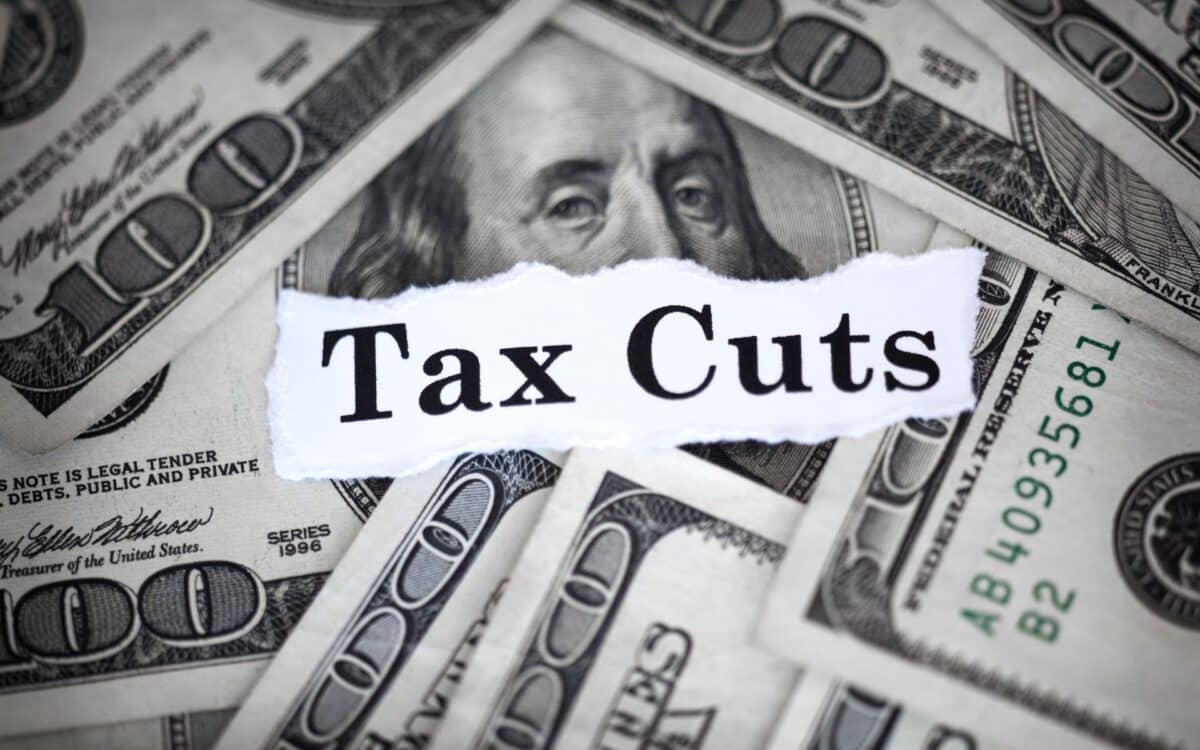The impending expiration of the 2017 Tax Cuts and Jobs Act (TCJA) by the end of 2025 could mark a turning point for the US economy, with nearly 6 million jobs at risk, according to a recent study by the National Association of Manufacturers (NAM). The report, conducted by Ernst & Young, outlines the severe economic repercussions that may follow if Congress fails to extend the Act’s key provisions.
The Stakes: What the Study Reveals
NAM’s analysis paints a stark picture of the potential consequences tied to the expiration of key tax measures, with profound implications for the U.S. economy. The findings reveal that millions of jobs are at risk, alongside significant economic losses, wage declines, and disruptions in the manufacturing sector, which is a cornerstone of American growth and stability.
If the tax provisions are not extended, the study estimates that 5.9 million jobs across various industries could be lost, signaling a severe blow to employment levels nationwide. Additionally, the U.S. economy stands to face a GDP shortfall of $1.089 trillion, reflecting the far-reaching impact on economic output and productivity.
Workers’ livelihoods would also be directly affected, with $540 billion in wages projected to be lost. This decline would not only harm individual households but also ripple through the economy, reducing consumer spending and weakening overall demand.
The manufacturing sector, in particular, faces a disproportionate burden, with 1.137 million manufacturing jobs at risk. The industry could see a loss of $126 billion in worker compensation and a staggering $284 billion in manufacturing GDP, highlighting the essential role of this sector in driving the nation’s economic engine.
These figures underscore the urgency of preserving these tax measures, as the manufacturing sector is not only a significant contributor to economic growth but also a vital source of stable, high-paying jobs that support millions of American families. Failing to act could compromise the nation’s economic resilience and global competitiveness.
The Critical Role of Manufacturing in Economic Growth
The manufacturing sector has long been a cornerstone of America’s economic strength, providing stable, high-paying jobs and driving innovation across industries. With the expiration of key tax reforms from the 2017 Tax Cuts and Jobs Act (TCJA) looming, the sector now faces significant uncertainty. Preserving these reforms is crucial not only for sustaining the progress made in recent years but also for ensuring continued economic growth and stability.
Jay Timmons, President and CEO of the National Association of Manufacturers (NAM), emphasized the urgency of acting swiftly to safeguard these reforms. “The time to act is now. Millions of American workers are depending on the manufacturing sector to continue driving America forward,” Timmons stated, highlighting the sector’s pivotal role in the nation’s economy.
Timmons pointed to the transformative impact of the 2017 tax reforms on manufacturing. Capital spending in the sector surged, with growth jumping from a modest 1.4% in 2017 to 4.5% in 2018 and 5.7% in 2019, reflecting the significant boost in investment activity. Additionally, 267,000 new jobs were created in 2018, making it the strongest year for manufacturing employment in over two decades.
However, Timmons warned that delaying action on these tax provisions risks undermining this progress, plunging the economy into uncertainty. He stressed that the failure to maintain these reforms could hamper job creation, stifle investment, and weaken the manufacturing sector’s ability to lead America’s economic growth. The stakes are high, and timely action is essential to preserve the momentum achieved over the past several years.
The International Threat: A Competitive Disadvantage
NAM highlighted a widening gap in Research and Development (R&D) Investments between the United States and its global competitors, a trend exacerbated by the expiration of immediate R&D expensing in 2022. For the first time in nearly a decade, the European Union outpaced the U.S. in R&D growth, while China’s R&D expansion surged to three times the rate of America’s. This shift underscores the challenges faced by U.S. businesses striving to maintain a competitive edge in the global market.
The association further warned that congressional inaction could exacerbate these issues by increasing taxes on pass-through businesses and family-owned firms. Additionally, the lapse in provisions may raise costs for essential investments, including R&D activities, capital equipment, and business loans. A less favourable tax environment could deter both domestic and foreign investment, potentially eroding the U.S.’s standing as a global economic leader.
Congressional Voices: Urging Immediate Action
Key congressional leaders have emphasized the urgency of extending the provisions of the Tax Cuts and Jobs Act (TCJA) to safeguard the nation’s economic stability and growth. With millions of jobs potentially at stake, these policymakers are advocating swift action to prevent a major economic downturn and maintain U.S. competitiveness in the global market.
Mike Johnson (R-La.), House Speaker, highlighted the severe consequences of inaction, stressing the need for immediate legislative measures. He warned, “Failing to extend the Trump tax cuts could result in an estimated 6 million lost jobs… Congress must act quickly.”
Similarly, Jason Smith (R-Mo.), Chair of the House Ways and Means Committee, pointed to recent studies as evidence of the critical need for timely intervention. “This study confirms the need to immediately extend the Trump tax cuts… Nearly 6 million jobs are on the line,” he stated, underscoring the potential ripple effects on businesses and workers.
Adding to the call for urgency, Steve Scalise (R-La.), House Majority Leader, framed the issue as a matter of global competitiveness and economic resilience. “We must act quickly to ensure we maintain global competitiveness, support investment and innovation, and safeguard small businesses and workers,” he remarked, emphasizing the broader implications of preserving the TCJA provisions.
Together, these voices reflect a strong consensus among key lawmakers on the necessity of extending these tax policies to protect jobs, support innovation, and sustain economic momentum.
A Pivotal Decision: What’s at Stake?
NAM’s findings underscore the interconnectedness of tax policy and economic vitality. Proponents argue that preserving the TCJA will:
- Secure American jobs.
- Stabilize the manufacturing sector.
- Bolster U.S. global competitiveness.
Failing to act risks higher taxes, slower economic growth, and diminished global standing. The debate now shifts to Congress and its willingness to prioritize long-term economic stability over political inertia.
A press conference to discuss the study further is scheduled for Tuesday at the Capitol, where policymakers will weigh the cost of inaction against the benefits of preserving America’s competitive edge.









